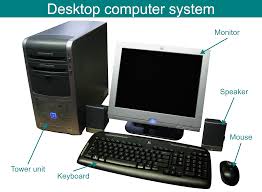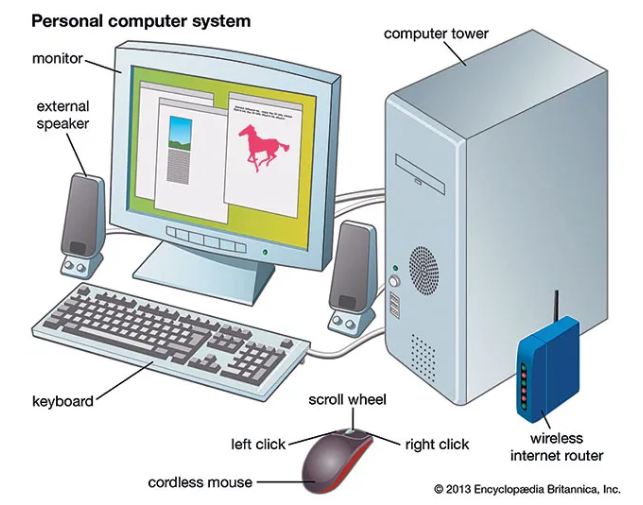A computer is an electronic device that takes data as input, processes it, and provides the result as output. It performs various computational and logical tasks quickly and accurately. The main features of a computer include speed, accuracy, storage capacity, automation, and versatility. Due to these qualities, the computer plays an indispensable role in science, education, business, entertainment, and many other fields in today's era. In this chapter, we will learn in detail about the basic definition of a computer, how it works, and its important features.
What is a Computer?
A computer is an electronic machine that takes data as input, processes it, and gives the result as output. It works according to instructions (programs) given by the user and performs calculations, data analysis, file management, graphic design, internet browsing, and many other tasks quickly and accurately. The working system of a computer depends on hardware (physical parts like monitor, keyboard, CPU) and software (programs and applications). It can not only perform mathematical calculations but also store data, which makes it an important tool in education, business, science, entertainment, and daily life.

Main Features:
- Speed – Can perform millions of tasks in seconds.
- Accuracy – Provides correct results without errors.
- Storage – Has the capacity to store large amounts of data.
- Automation – Can perform tasks automatically without fatigue.
- Versatility – Adaptable for different tasks.
Computers have made human life easier and technologically advanced, making them an essential invention of the modern age.
Main Features of a Computer (Speed, Accuracy, Storage Capacity)
The main features of a computer are given below:
1. Speed
- Computers perform calculations and tasks very quickly.
- They can process millions of instructions in seconds.
- Compared to humans, computers complete large tasks in much less time.
2. Accuracy
- Computers work free from errors.
- If the input and program are correct, there is no mistake in the output.
- It provides 100% accuracy in mathematical and logical operations.
3. Storage Capacity
- Computers have the ability to store large amounts of data.
- Data can be stored using hard disks, SSDs, pen drives, cloud storage, etc.
- Data is safely kept for a long time and can be accessed easily when needed.
Other Important Features:
- Diligence – Computers can work continuously without getting tired.
- Versatility – It can be used for various tasks.
- Automation – The ability to perform tasks automatically through programs.
These features make computers the most beneficial machine of the modern era.

Advantages and Disadvantages of Computers
Advantages
- Speed & Efficiency
- Computers perform calculations thousands of times faster than humans.
- Process large data quickly and accurately.
- Accuracy
- If the input is correct, computers deliver almost error-free results.
- Data Storage
- Can store large amounts of data (files, photos, videos).
- Data can be securely stored using cloud storage.
- Automation
- Can automatically perform repetitive tasks (like software updates, backups).
- Communication & Internet
- Easy to connect globally through email, video calls, social media.
- Increased access to information and education through the internet.
- Versatility
- Used in various fields like education, business, entertainment, science.
Disadvantages
- Dependency
- People have become overly dependent on computers, reducing brain usage.
- Unemployment
- Automation and mechanization have caused some jobs to be lost.
- Health Issues
- Prolonged use of computers can cause eye strain, back pain, obesity.
- Cyber Threats
- Increased risk of viruses, hacking, data theft, and fraud.
- Costly
- Computers, software, and maintenance can be expensive.
- Social Isolation
- Spending excessive time online reduces real-life social relationships.
A computer is a powerful tool, but it must be used wisely. Its advantages are great, but its disadvantages can be serious as well.